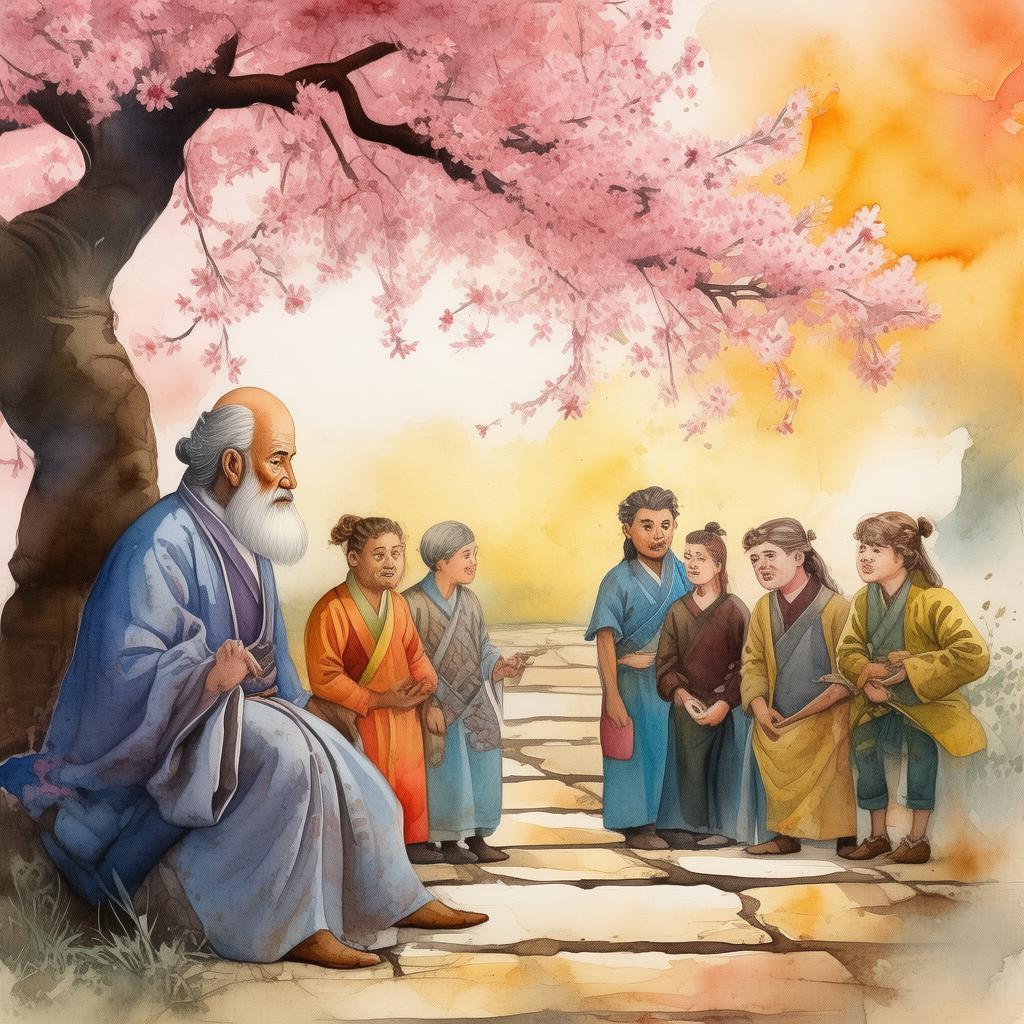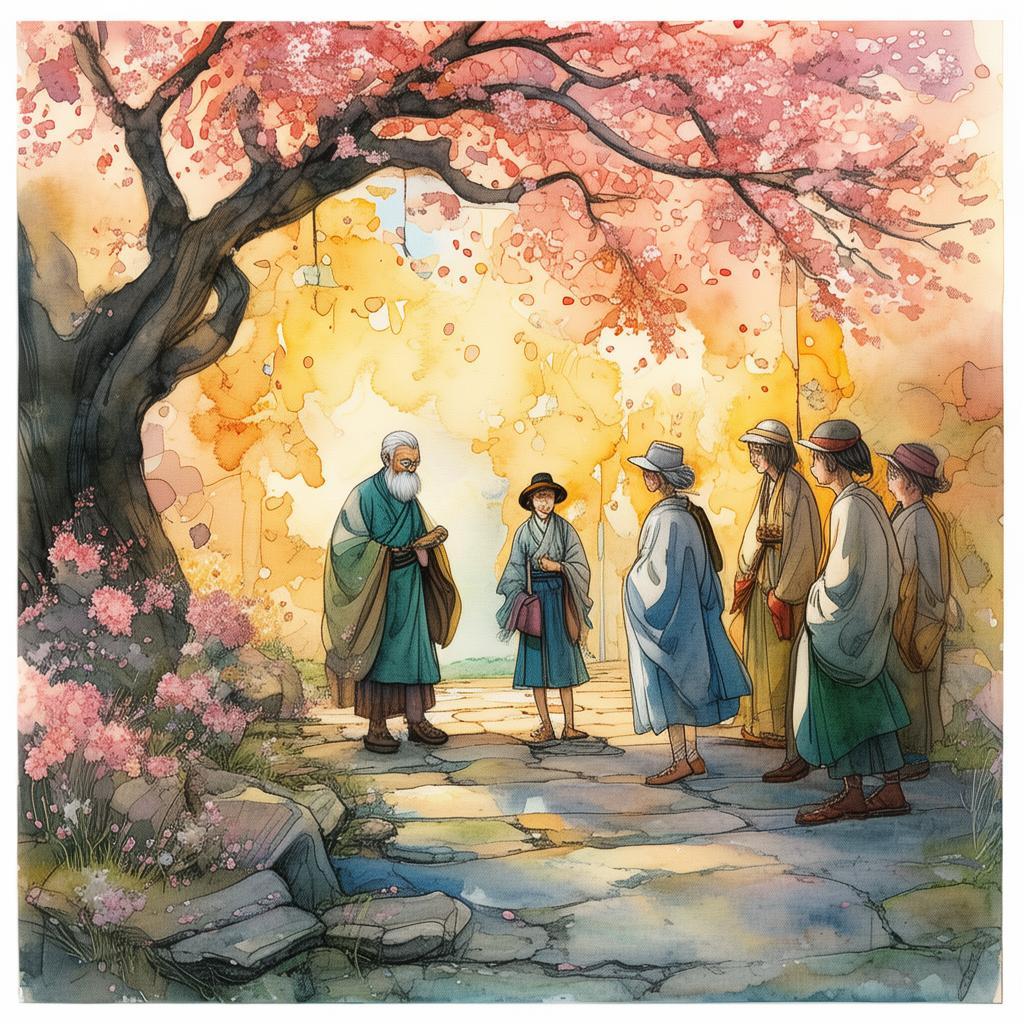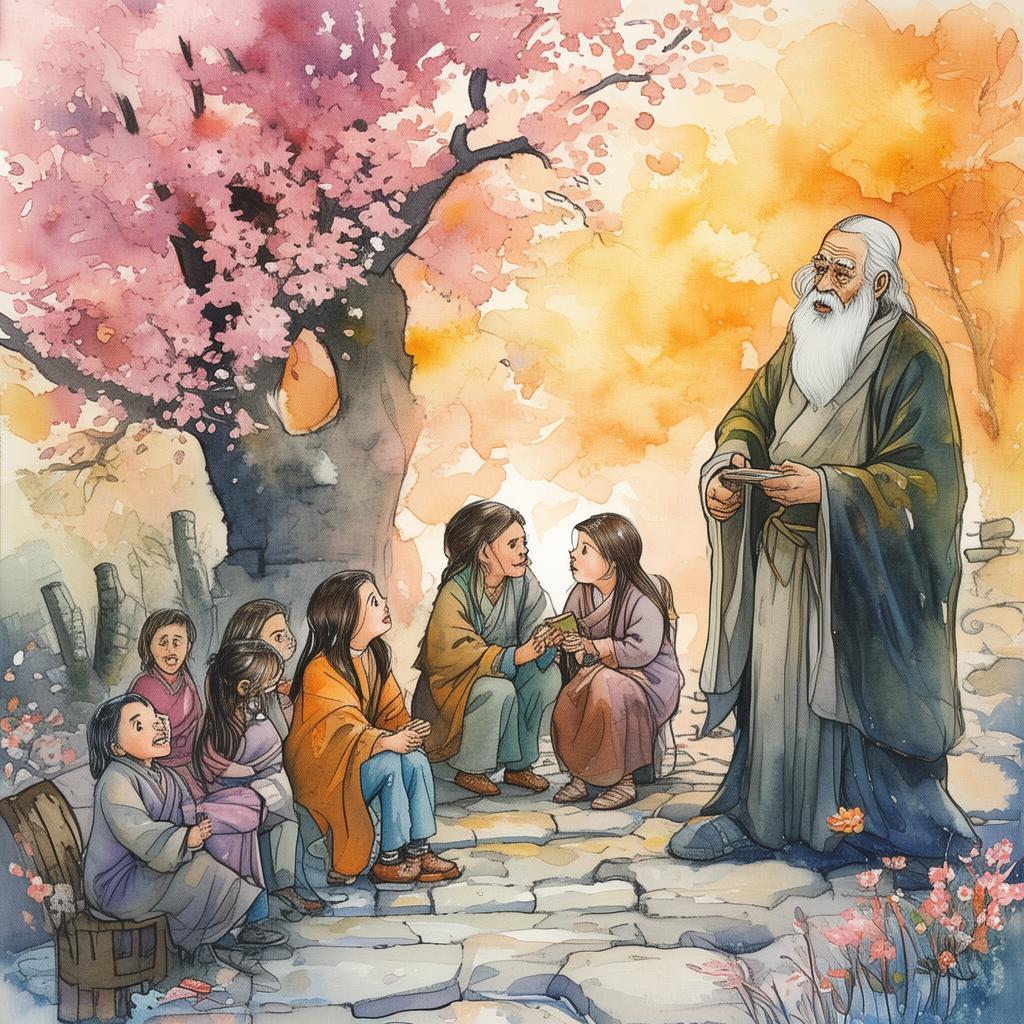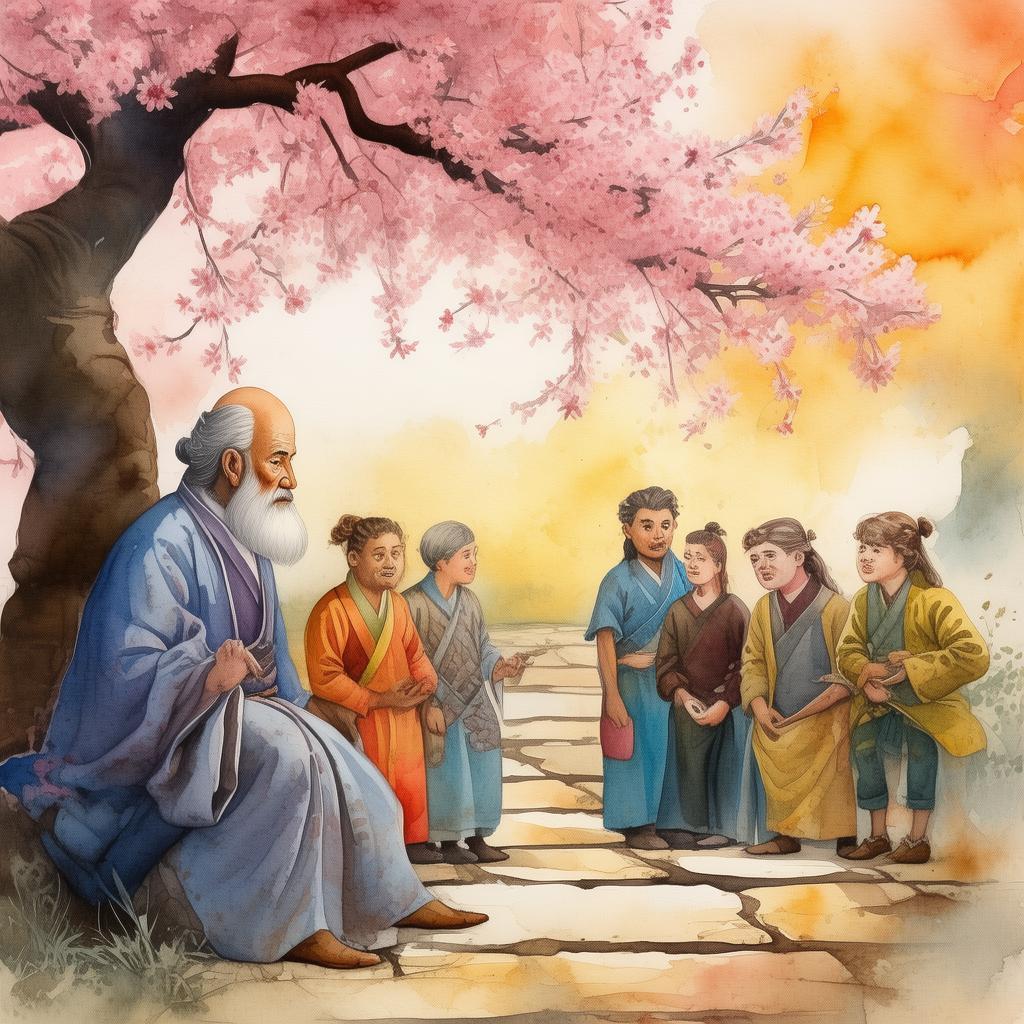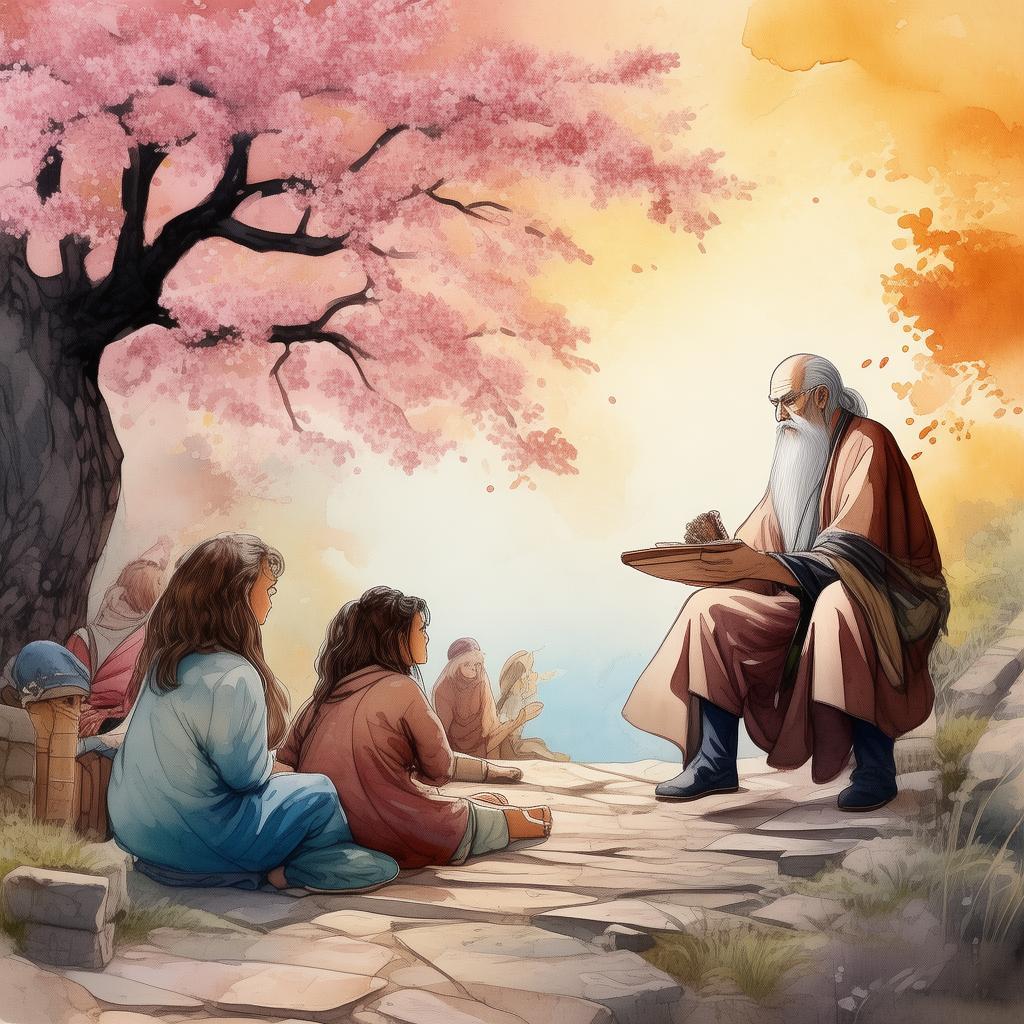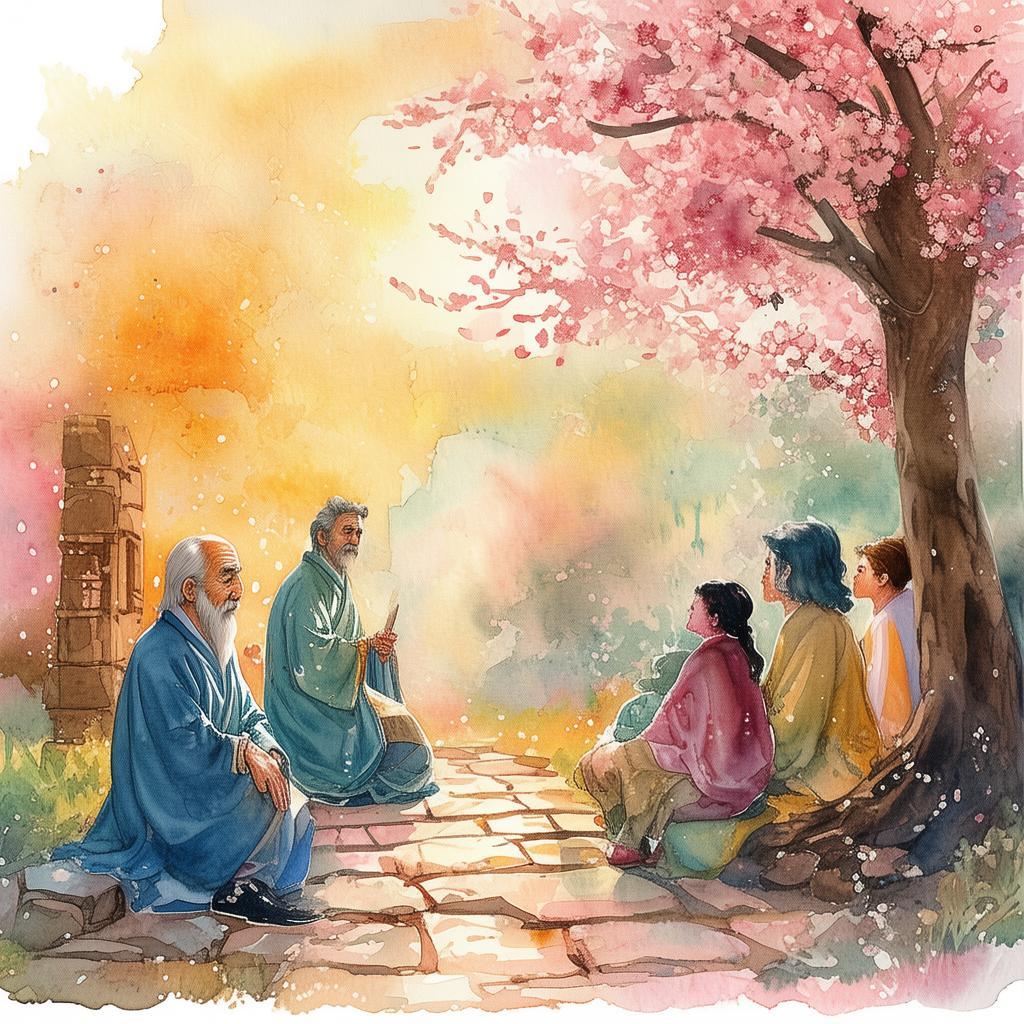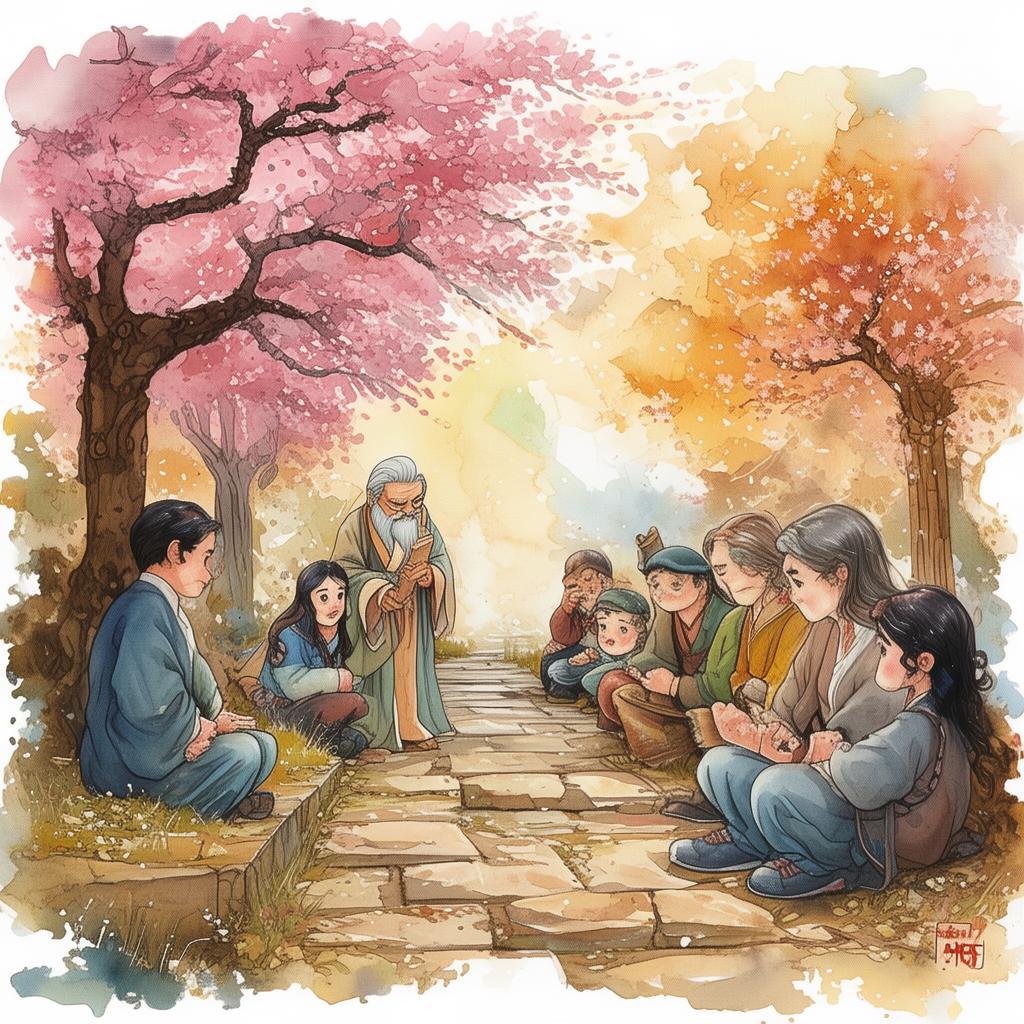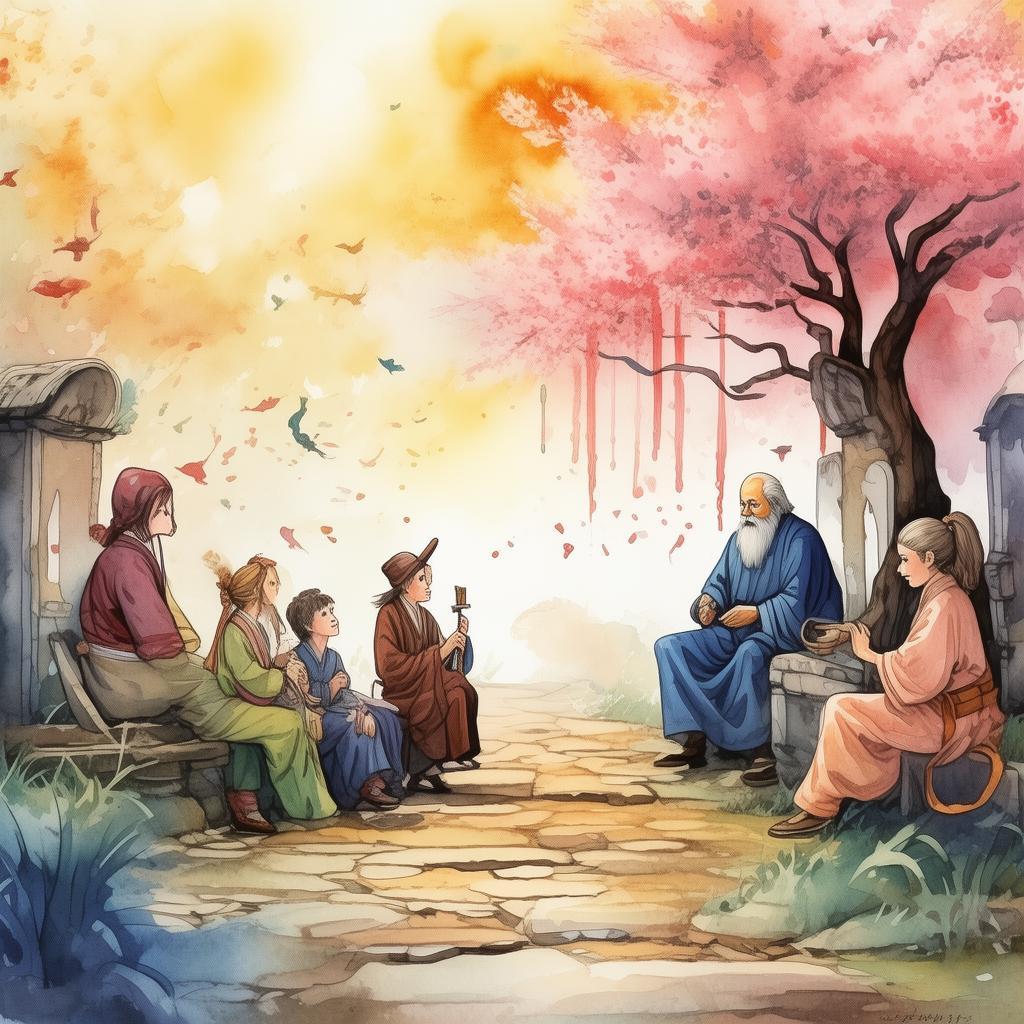The Scholar's Farewell: The Last Stroke of the Pen
In the ancient city of Liling, nestled between rolling hills and the flowing Yangtze River, there lived a scholar named Cheng Qian. His name was synonymous with erudition, his pen a master's tool that painted the landscapes of ancient China with vivid strokes of ink. Cheng Qian was not just a writer, he was a keeper of stories, a chronicler of the souls of his time.
The city of Liling was a hub of culture and knowledge, where scholars, artists, and poets gathered to exchange ideas and inspire each other. Cheng Qian's works were revered, his words the voice of wisdom, his stories the dreams of the people. Yet, even in the heart of this vibrant community, there was a growing undercurrent of change.
The world was shifting. The age of the scholar was waning, supplanted by the new age of the merchant class, whose wealth and influence were growing. The scholars, once the pillars of society, were becoming mere shadows of their former selves. Cheng Qian felt the weight of this change, the weight of his own fading relevance.
One evening, as the last light of the setting sun painted the sky in hues of orange and purple, Cheng Qian sat at his desk. The ink was drying on the last scroll, the final paragraph of his magnum opus, a collection of tales that had taken him years to write. The title of the collection was "The Farewell to the Pen."
He took a deep breath, the air thick with the scent of ink and the knowledge of his own mortality. With a trembling hand, he picked up his pen. The weight of the pen in his hand was as heavy as the world that lay outside his door. He was about to write his final words.
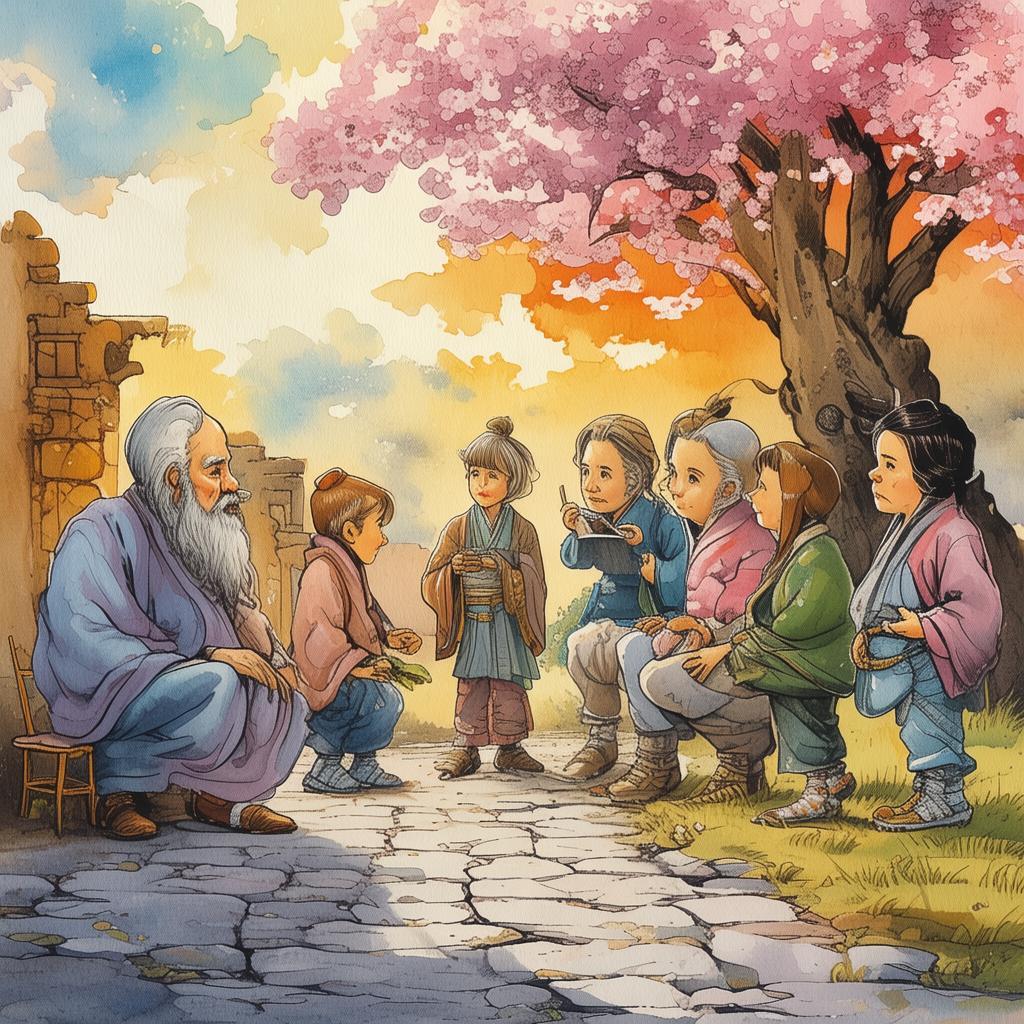
As he began to write, a sudden knock at the door shattered the silence. He set down the pen, his heart pounding with anticipation. The door creaked open, and there stood a young man, his eyes filled with sorrow.
"The master," the young man said, his voice barely above a whisper, "the master has passed away."
Cheng Qian's heart dropped. His mentor, the man who had inspired him to write, the man who had shown him the path of the scholar, was gone. He turned back to his desk, the pen in his hand. He knew this was it. This was his farewell to the pen.
With a steady hand, Cheng Qian began to write. The words flowed effortlessly, a testament to his years of practice. He wrote of his mentor, of the times they had shared, of the wisdom he had imparted. He wrote of the changing world, of the fading relevance of the scholar, of the dreams that had once filled his heart.
When he finished, he looked at the scroll, his eyes welling with tears. He knew that this was his farewell, not just to the pen, but to the life he had known. He rose from his chair, the pen in his hand, and began to walk to the door.
As he stepped outside, the world seemed different. The sounds of the city were distant, the people were a blur of motion. He walked to the riverbank, the Yangtze flowing gently beside him. He sat down, the pen in his hand, and wrote one last time.
The words were simple, yet profound. "To the world that has forgotten me, I leave my pen. May it remind you of the stories that once filled our hearts."
With that, he took a deep breath, closed his eyes, and let the pen fall from his hand. The pen landed in the river, its ink spreading out, blending with the water. Cheng Qian closed his eyes, feeling the weight of his farewell lifting from his shoulders.
The Farewell to the Pen had become more than a collection of tales; it had become a symbol of the end of an era. Cheng Qian's farewell to the pen was not just a personal one; it was a farewell to the scholars of old, to the wisdom they had shared, and to the world that had turned its back on them.
The world would remember Cheng Qian, not just for his words, but for his farewell to the pen. It was a testament to the enduring power of art, even in a world that had changed beyond recognition.
✨ Original Statement ✨
All articles published on this website (including but not limited to text, images, videos, and other content) are original or authorized for reposting and are protected by relevant laws. Without the explicit written permission of this website, no individual or organization may copy, modify, repost, or use the content for commercial purposes.
If you need to quote or cooperate, please contact this site for authorization. We reserve the right to pursue legal responsibility for any unauthorized use.
Hereby declared.
